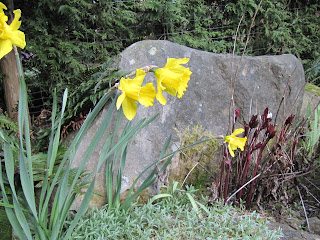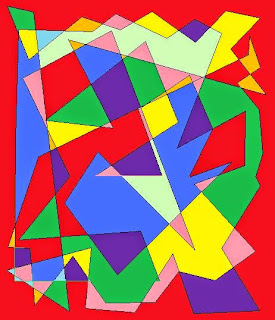I grew up believing that, to be a success, I had to emulate the rich and famous people on television and movies, as they presented themselves in public - for surely that is exactly who they are.
An incredible assumption isn't it?
In one of the teen magazines I filled out a questionnaire which told me this was the way to find out who I am.
The conclusion was that I was shallow! I was shocked because the people I looked to for advice said, I thought too much, I was too serious, and the boys would not like me because of that.
At the time I had no idea of how power worked. I thought you had it or you didn't, and if you didn't others would wipe the floor with you. In defence of that I decided to stand strong and not let anyone push me around. What I couldn't see was how others actually saw me. Many years later, after many mistakes and several bouts of depression, I realized I appeared snobbish and cold.
So I re-masked myself, drew in some confidence and went out to learn how the world works and how to be effective in whatever I choose to do. I thought power came from outside, from society, from friends and peers, from co-workers and managers. But I remained convinced that I had to look tough and never cry. Never, ever cry, for that is the worst thing you can do. Worse than killing birds and spiders. Worse than cheating on your taxes. Worse than letting someone put you down without a brilliant comeback.
As much as I wanted to be well liked, I was simply shallow. My self-esteem was non-existent. To be somebody I sought the approval of those around me. After giving birth to my first child I realized I was not the centre of the universe and that was a good thing. After my second child I learned that love is a more endurable power than fear. After my third child I learned that I was not in control and that was a good thing.
The world was not a series of headlines, television shows, actors and anchors - the world was the family, the neighbours, the friends and supports around me. I learned to think differently about power.
I could see that the headmistress in my last school had power in the way she encouraged me to develop some confidence. The Victorian Order of Nurses had power - for they gave me time to ask difficult questions about caring for my babies and myself without fear they would be taken away from me.
My partner and father of my children had power in all the ways he supported and loved us all. My friends had power in the ways they were authentic, caring people.
The world of power revealed it was an interdependent web. Whenever I sought position for my ego I became fractured and brittle. Whenever I thought of this world as a place where I could contribute my voice, my wisdom, my ideas, I discovered I was often wrong. But that was okay because I learned from mistakes.
My ego was powerless in all its appetites and vanities. This life that I call mine, is not really mine. It is the result of something that began billions of years ago. It is connected, dependent upon and subject to my own conscience. Social responsibility is embedded in all that before and all that will come after this short life.
Now as the human world is revealed through politics, wealth, fame and violence, it forgets its own embedded opportunities to sustain itself and the planet it lives on, for the sake of power as a zero sum game. And its this that is destroying us.
We must give up this worship to find our power within the web of life, which is desperately trying to reach us.














